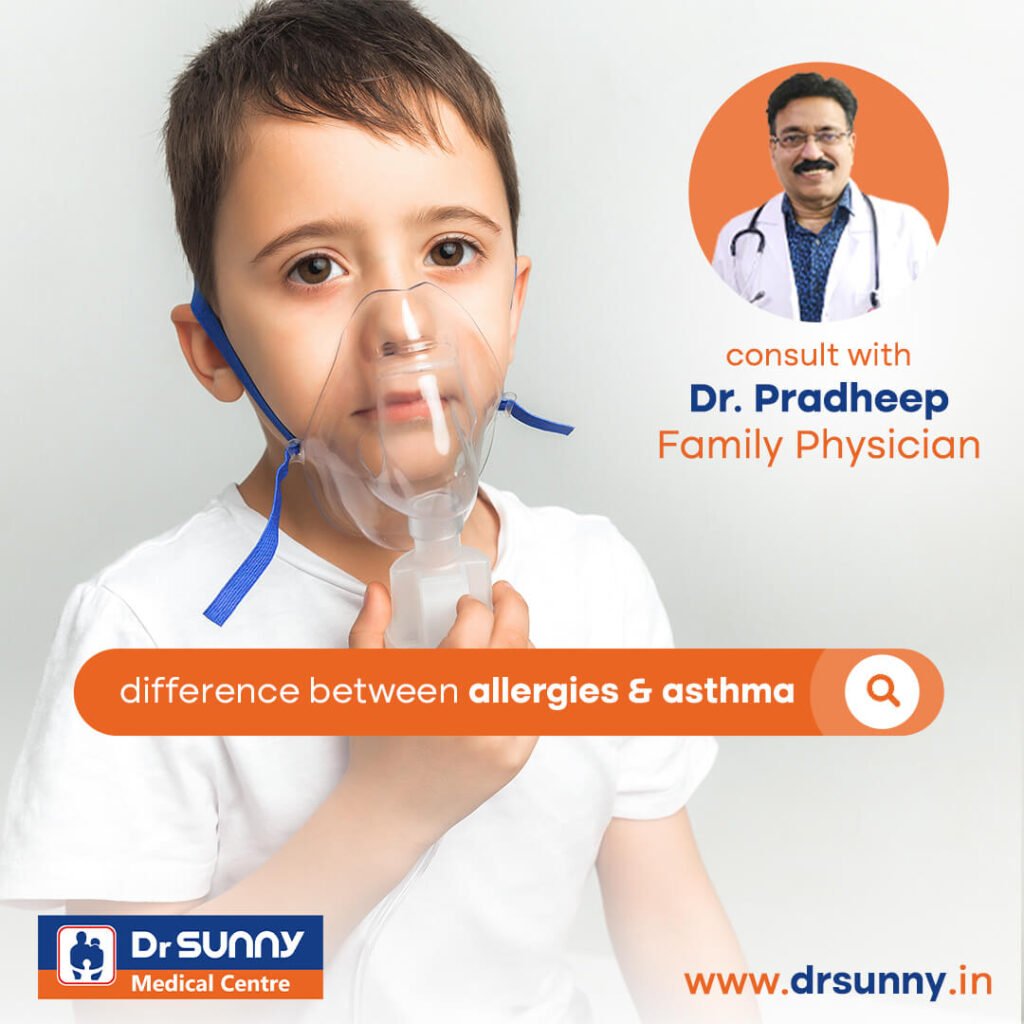

Allergies and asthma often occur together and there are many instances when people often confuse allergies with asthma. Though there is a similarity as both conditions affect the respiratory system, but they are distinct conditions with based on what causes an allergy or asthma and the symptoms in both the respiratory trouble. Here’s a breakdown of the key differences between allergies and asthma:
Causes:
Allergies: Allergies occur when the immune system reacts abnormally to substances that are usually harmless to most people, known as allergens. Common allergens include pollen, dust mites, pet dander, certain foods, and insect venom.
Asthma: Asthma is a chronic respiratory condition characterized by inflammation and narrowing of the airways. It can be triggered by various factors, such as allergies, respiratory infections, exercise, cold air, pollutants, and irritants like smoke or strong odors.
Symptoms:
Allergies: Allergic symptoms typically involve the immune system’s response to allergens. Common symptoms include sneezing, runny or stuffy nose, itching or watery eyes, itching or rash on the skin, and sometimes coughing.
Asthma: Asthma symptoms primarily affect the airways. They can include recurrent episodes of wheezing (a whistling sound during breathing), shortness of breath, chest tightness, and coughing, especially at night or early in the morning.
Mechanism:
Allergies: In an allergic reaction, the immune system releases chemicals, such as histamine, in response to exposure to allergens. These chemicals trigger the characteristic allergy symptoms.
Asthma: Asthma involves chronic inflammation and hyperresponsiveness of the airways. When triggered, the airways become narrowed, and the muscles around them constrict, leading to breathing difficulties.
Triggers:
Allergies: Allergies are triggered by specific allergens that vary from person to person. Common triggers include pollen, mold spores, pet dander, dust mites, certain foods, and insect stings.
Asthma: Asthma can be triggered by various factors, including allergens (such as pollen or pet dander), respiratory infections, exercise, cold air, air pollution, tobacco smoke, strong odors, and stress.
Treatment:
Allergies: Treatment for allergies typically involves avoiding allergens when possible, taking over-the-counter antihistamines, using nasal sprays or eye drops, and in severe cases, prescription medications like corticosteroids or allergy shots (immunotherapy).
Asthma: Asthma treatment involves a combination of long-term control medications (such as inhaled corticosteroids and bronchodilators) to manage inflammation and prevent symptoms, as well as quick-relief medications (short-acting bronchodilators) to provide immediate relief during asthma attacks or exacerbations.
It’s worth noting that allergies and asthma can coexist, with allergies being a potential trigger for asthma symptoms in some individuals. If you suspect you have either condition, it’s important to consult with a healthcare professional for an accurate diagnosis and appropriate management. If you are suffering from either allergy or asthma you can contact our family physician Dr. Pradheep E. He is available at both our branches in Bellandur as well as Kasavanahalli. He has been with us for the past 8 years. As an amazingly trusted physician, he understands that each patient is unique and deserving of personalized care.
